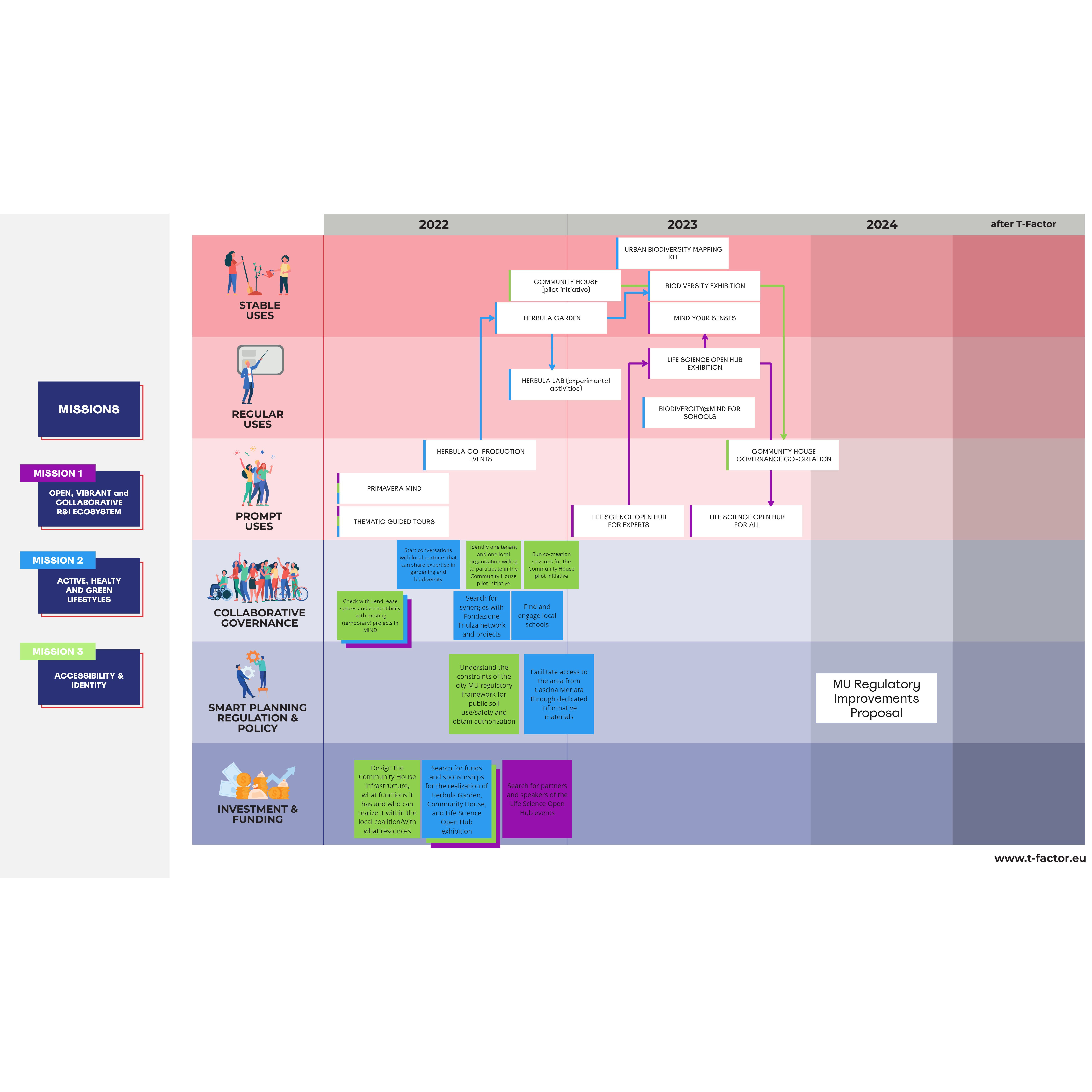Toolbox in Action
Explore how participatory meanwhile interventions unfolded in the context of seven regeneration initiatives across Europe & Asia.
Particularly suggested for policy-makers, practitioners, and researchers.
Theory of Change
MIND Milan
MIND Milano Innovation District is a pioneering urban innovation district, it places an emphasis on sustainability, wellbeing, nature integration and functionality. The T-Factor pilot at MIND addressed three ‘meanwhile missions’ encompassing a proactive approach to knowledge dissemination, sustainable urban lifestyle promotion, and enhanced territorial integration.
Developing a well-informed community cognisant of MIND’s ongoing research and possible impacts on society, and building connections with stakeholders, fostering collaborations and benefits from the research conducted at MIND.
Supporting well-being by launching educational and cultural initiatives that highlight the importance of nature, biodiversity, and green practices in urban settings.
Building stronger connections with municipalities and communities to create a unified urban ecosystem, and focusing on the seamless integration of the MIND district into the broader cityscape of Milan, promoting a harmonious city-district relationship.
Explore MIND Portfolio

Privacy Overview
| Cookie | Duration | Description |
|---|---|---|
| cookielawinfo-checkbox-analytics | 11 months | This cookie is set by GDPR Cookie Consent plugin. The cookie is used to store the user consent for the cookies in the category "Analytics". |
| cookielawinfo-checkbox-necessary | 11 months | This cookie is set by GDPR Cookie Consent plugin. The cookies is used to store the user consent for the cookies in the category "Necessary". |
| CookieLawInfoConsent | 1 year | Used to save user's preferences about the cookies. |
| PHPSESSID | session | Preserves user session state across page requests. |
| viewed_cookie_policy | 11 months | The cookie is set by the GDPR Cookie Consent plugin and is used to store whether or not user has consented to the use of cookies. It does not store any personal data. |
| Cookie | Duration | Description |
|---|---|---|
| _ga | 2 years | This cookie is set by Google Analytics. It is used to identify unique users and it expires after 2 years. |
| _gat | 1 minute | This cookie is set by Google Analytics. It is used to by Google Analytics to throttle request rate. |
| _gid | 24 hours | This cookie is set by Google Analytics. It is used to identify unique users and it expires after 24 hours. |